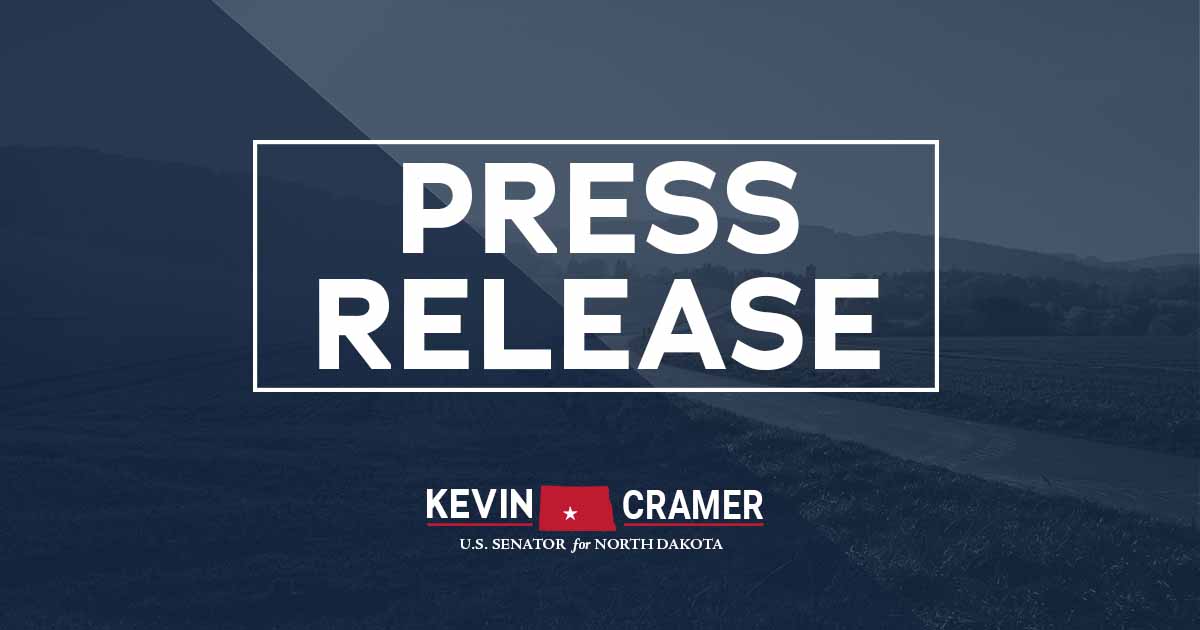Source: United States Senator Kevin Cramer (R-ND)
WASHINGTON – U.S. Senator Kevin Cramer (R-ND), member of the Senate Banking Committee, joined colleagues and every Republican member of the Senate Banking Committee in urging Senate Majority Leader Chuck Schumer (D-NY) to abandon the Biden Administration’s unprecedented proposal to expand the reporting of the private, confidential financial data of law-abiding Americans from financial institutions to the Internal Revenue Service (IRS). The administration’s proposal would force financial institutions to report customer information such as gross inflow and outflow information and transaction information directly to the IRS.
“This proposal represents a radical departure from existing reporting requirements associated with national security and actual taxable events,” the senators wrote. “Placing more requirements on financial institutions would not only adversely affect these institutions and their customers – who ultimately pay the price for compliance costs – but it would also inundate the IRS with layers of new paperwork and taxpayer data that is either redundant or irrelevant to improving federal tax compliance, as account inflows and outflows are not taxable events. Simply flooding the IRS with more data and burdening taxpayers, financial institutions, and already overwhelmed IRS service centers with more paperwork is of questionable value, especially when the IRS does not effectively use data already in its possession.”
Senators Cramer and Thune are joined on the letter by Senators John Barrasso (R-WY), Marsha Blackburn (R-TN), John Boozman (R-AR), Richard Burr (R-NC), Bill Cassidy (R-LA), John Cornyn (R-TX), Steve Daines (R-MT), Chuck Grassley (R-IA), Bill Hagerty (R-TN), John Hoeven (R- ND), John Kennedy (R-LA), James Lankford (R-OK), Cynthia Lummis (R-WY), Jerry Moran (R-KS), Rob Portman (R-OH), Michael Rounds (R-SD), Ben Sasse (R-NE), Tim Scott (R-SC), Richard Shelby (R-AL), Thom Tillis (R-NC), and Todd Young (R-IN).
The American Bankers Association, Independent Community Bankers of America, and Credit Union National Association also voiced their support for the letter.
“We appreciate the letter from Senator Thune and his colleagues, and it highlights many of the concerns we are hearing about this misguided proposal from bank customers,” said Rob Nichols, President and CEO of the American Bankers Association. “This plan would force banks to develop a costly new system to provide private financial data on almost every taxpayer to the IRS, not just those suspected of cheating on their taxes. It’s not clear the IRS could even process and protect all that information. Perhaps most troubling of all, it risks driving people away from the banking system and all the economic benefits that come from having a bank account. We urge Congress to reject this bad idea.”
“An ICBA poll conducted by Morning Consult found 67% of voters oppose requiring financial institutions to report customer account information to the IRS, while consumers are speaking with more than 400,000 messages to their members Congress in opposition,” said Rebeca Romero Rainey, President and CEO of the Independent Community Bankers of America. “The IRS reporting proposal is an invasion of consumers’ privacy, a violation of Americans’ due process, a data security risk amid the agency’s ongoing tax return leak investigation, and a threat to bipartisan efforts to reduce the unbanked population by driving more Americans out of the banking system and toward predatory lenders.”
“This proposal is deeply concerning for America’s credit unions and their 120 million members,” said Jim Nussle, President and CEO of the Credit Union National Association. “Not only would the regulatory burden create an outsized impact on credit unions serving rural communities, but it raises serious privacy concerns for every consumer in the country. From the massive 2014 data breach at the Office of Personnel Management to this year’s IRS leak of federal tax returns, the federal government’s checkered history of warehousing personal data underscores the dangerous impracticality of this policy proposal.”
